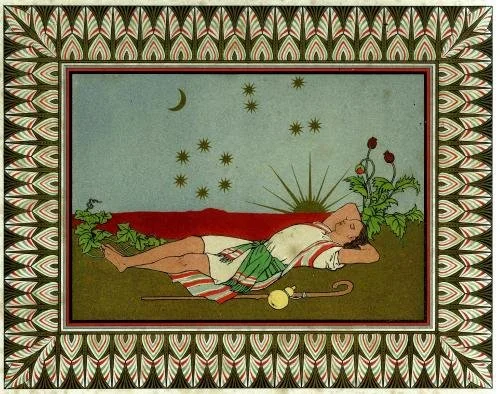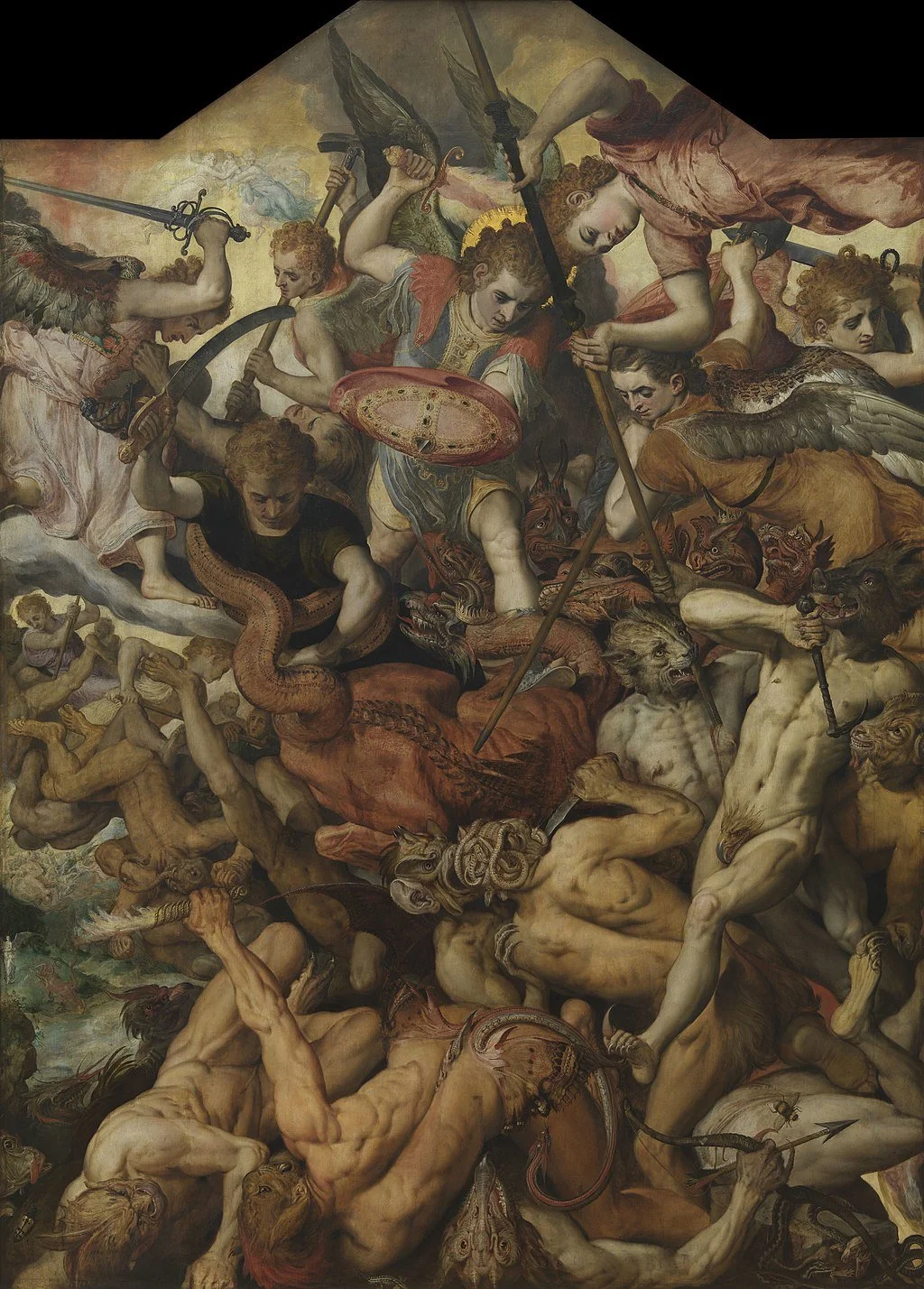12/1/2024
We’re reading through Revelation along with NT Wright’s Revelation for Everyone. These notes include discussions of topics of additional interest and attempt connections with more Old Testament material.
12 Continued
We took a short detour, following the woman’s sun, moon, and stars imagery, back to the end of Genesis to remember Joseph, who had a dream about the sun, moon, and stars. If the woman represents the people of God, now including the church, how does Joseph relate? What are we to learn from him?
Owen Jones, Joseph Dreams of Stars, 1869
Gordon Wenham writes in his Genesis commentary that there are ~60 references in the Joseph story to earlier events in Genesis. It appears his story is a recapitulation of earlier themes. In some ways he is a model practitioner of God’s will, yet at the end of his story, there is a dark turn that drives us toward the events of early Exodus.
In Genesis 47:13-26, Joseph, having already collected the produce of the land for seven years, during a famine sells that produce back to the Egyptians who grew it until their animals and land are gone, so they must sell themselves. Although some translations obscure it, the NASB translates the Hebrew literally to tell us Joseph moves the people from the fruitful land into cities. If we recall earlier events in Genesis, this movement from fruitful land to cities invokes Cain, Babel, and Lot’s progression toward Sodom. We may receive it as clarifying Joseph’s actions toward the Egyptians as corrupt and foreshadowing the Exodus pharaoh’s similar oppressive treatment of Joseph’s family.
Joseph is sold into slavery, forced to live outside the land promised to his ancestors, and sent to prison, yet in those places by acting with integrity, listening to God’s voice, and obeying, he wins the respect and trust of his leaders including the pharaoh. God uses others’ evil actions for good and elevates Joseph to a position through which he could save the known world. His story is a kind of fulfilment of God’s Genesis 1 blessing – he is so fruitful he could feed not only his family and the Egyptians, but peoples of the surrounding nations. All this and he reconciles with the brothers who sold him into slavery to preserve the family God had promised to bless the nations with and to give the land of Canaan to as an inheritance.
If the church is like Joseph, though we might be dwelling in the wilderness, God provides and has given us the opportunity to bless the nations if we act with integrity. As satisfying and encouraging as this sounds, the twist near the end of Joseph’s story ought to be a point of deep meditation for the church because even someone as apparently righteous as Joseph is not above abusing the people who had oppressed him or behaving like a Genesis 1-11 seed of the serpent figure who abandons God’s priorities to pursue their opposites. Certainly church history provides far too many examples of doing exactly that, and our current moment affords opportunities to do it again if we do not listen to God’s instruction.
The War in Heaven
We briefly reviewed the sparse, periodic references to spiritual beings in Genesis 1 day 4, Genesis 3, Genesis 6, Deuteronomy 32, and Psalm 82 that give us a picture of spiritual beings God created who, like humans, rebel against him. One reading of these passages yields the bare storyline of God creating spiritual beings and giving them authority; their rebellion; God later assigning them authority over nations; and their continued rebellion and failure to rule with God’s character leading to his promise to judge them. Revelation 12’s war in the heavens fits this narrative as it provides an account of apparent judgment of rebellious spiritual powers.
More on this to come.
Frans Floris, The Fall of the Rebel Angels, 1554

